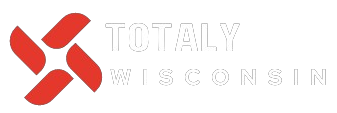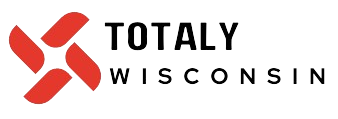Marilyn Vetter underwent a lengthy interview process last year as Pheasants Forever and Quail Forever conducted a nationwide search for a successor to longtime chairman and CEO Howard Vincent, who announced his retirement plans in early spring 2022. She formally took the job after Pheasant Fest 2023 in Minneapolis.
Vetter grew up on a cattle ranch in central North Dakota and went into broadcast journalism after completing her bachelor’s degree at the University of North Dakota. A friend convinced her to start selling pharmaceutical products, and for the next 30 years she worked in three companies in this industry.
One of Vetter and her husband Clyde’s first purchases after graduation was a German Shorthaired Pointer puppy. This launched Clyde’s career as a dog trainer and inspired them to start raising GSP. Thirty years ago, they joined the North American Versatile Dog Association and eventually became NAVHDA judges. Vetter, a long-time PF board member, joined the PF board in 2015 and most recently served as vice chairman of the board.
ON: You were on the PF & QF board for seven years. Tell us what it’s like to be part of a nonprofit conservation board.
Vetter: The council plays three roles:
Hire a CEO and hopefully never fire him, make sure the organization’s fiduciary responsibilities are well overseen, and make sure the strategic planning process is aligned with the mission of the group and the board.
They should be looking at things from 30,000 feet and the board should not get involved in the day-to-day operations of the group. The council provides an advisory forum for the CEO on some of the challenges the group may face.
Our board of directors includes passionate nature conservationists and bird hunters who really care about the success of the organization and its staff.
ON: The recruitment process for your position seemed quite intense – over 150 people applied?
Vetter: Yes, it was really intense and extremely thorough. The general board didn’t know about my application until the very end, so it didn’t necessarily spoil anyone’s positive or negative perception of me or the other candidates. I thought that was really essential in this process.
There were a few steps. After the first round, about 20 of us had to answer a detailed questionnaire, and the final step was to present a few of us to the board. The board put in a huge amount of time, so it probably seemed intense to me, but I bet it was really exhausting for them.
ON: Now that you’ve been CEO for a few months, do you look at the board from a different perspective?
Vetter: Not so much the relationship, but I see it from a different perspective. You don’t know what you don’t know. Learning what issues should be brought to the board level has been a good experience for me because it teaches me patience.
ON: Share with us your experiences with German Shorthaired Pointers.
Vetter: We have had GSP since the 1990s. We started with one, then two, then three, then we started a dog kennel and my husband became a trainer. Now, 70-something litters later – the results add up quickly if you only do a few litters a year! – and for us, it connected us with our best friends in the world. We recently had a little boy who was very excited when his dad bought him his first GSP and then had him tested by NAVHDA. He sent us a photo. These are priceless moments from this part of our lives.
ON: GSP for life?
Vetter: If I didn’t have to groom an English Setter, I love the way he moves while hunting. I grew up with collies and had to groom them all the time, so I don’t have much tolerance for it. I saw English national cockers recently and boy were these little dogs humorous. Great dogs for pheasant hunting.
ON: Any surprises or moments of delight since starting work?
Vetter: I was really elated to see how well the team worked together. It’s a huge organization spread out all over the country and they really are amazing at communicating with each other. I would say that if there are any surprises, maybe it’s the complexity of things. Like an alphabet soup of all government agencies and nonprofit groups. I have with me a 10-page glossary that the team prepared for me. I carry it everywhere so when someone mentions a fresh acronym I haven’t heard before, I can look it up.
ON: At Pheasant Fest, you said that PF&QF has the largest staff of biologists outside the US Fish and Wildlife Service.
Vetter: We have the largest number of private lands biologists of any organization. There are over 300 biologists (the total number of employees at PF/QF is less than 500).
ON: PF is the Habitat Organization. How do you attract the attention of non-hunters who enjoy blue whiting or other species that also apply grassland habitats?
Vetter: Wild animals live in the grasslands, from meadow larks to white-tailed deer. Hunters, hikers, bird watchers, photographers and outdoor enthusiasts of all kinds benefit from this iconic ecosystem. With the chance to observe wild creatures of all shapes and sizes, anyone can connect with the highlands of North America.
ON: You are one of several women who have led huge conservation groups in recent years. Is reaching out to women and other non-traditional members a personal priority?
Vetter: Howard (Vincent) actually started this a long time ago, working on the Becoming an Outdoors-Woman program, which actually had its roots in Wisconsin thanks to Prof. ChristineThomas. We have 11 chapters devoted to women. I believe that when women are involved, families are involved, and that’s really a key way to allow children to come into this space and that’s how we ensure that the traditions of hunting and conservation continue.
We have a lot of people interested in hunting who haven’t necessarily thought about how much of that interest is their conservation responsibility. It is our responsibility to make them feel welcome and then let them understand that they play a role in the massive, long-term picture of being part of this community.
ON: Any final thoughts?
Vetter: This organization is extremely vigorous and robust. The highlands are calling to us and it is vital that we as a country invest in habitats because we are losing them at a faster rate than we can build and restore them. We are completely committed to this mission and want others to be a part of Pheasants and Quail Forever. Participating, and not just with your dollars, but with your blood, sweat and tears, is extremely essential because this will only be possible if we all do it.
Editor’s note: Pheasant Fest and Quail Classic 2024 will be held in Sioux Falls, SD, March 1-3, 2024.


